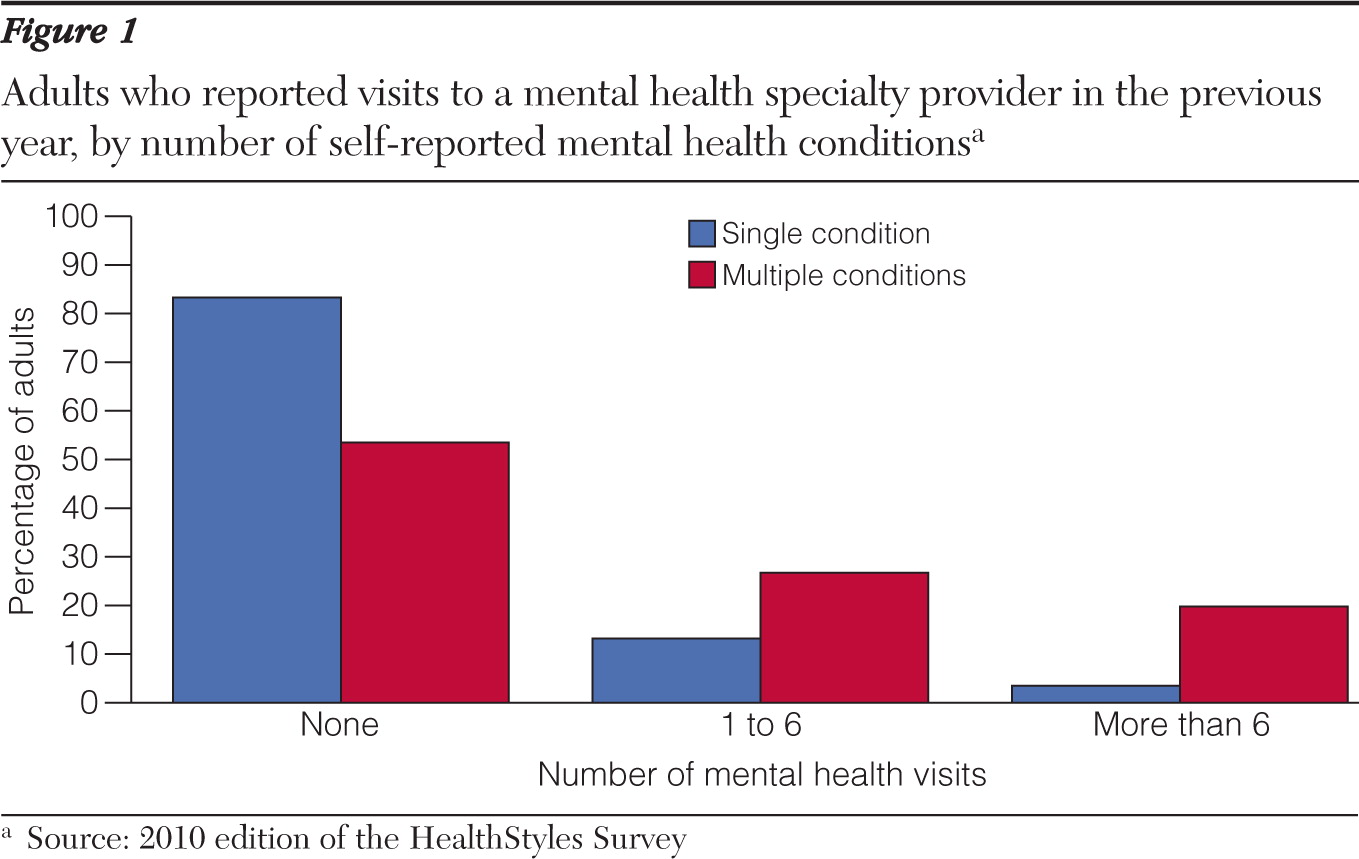One measure of progress in reducing negative attitudes toward people with mental illness is the extent to which members of the general public who report having a mental health condition seek specialist care. To examine this issue more closely, we analyzed adult responses to the 2010 edition of the HealthStyles Survey. The survey is a large, private proprietary, national mail panel marketing survey conducted annually to assess attitudes and beliefs about chronic and infectious disease and behaviors, exposure to health information and to health communication campaigns, and self-reported symptoms, risk factors, diseases, and disorders (
1). The survey is designed to be representative of the U.S. population, and the 2010 survey data were weighted to match the 2009 Current Population Survey estimates for age, sex, marital status, education, and race-ethnicity. The 2010 survey was mailed to 6,255 respondents; the response rate was 67% (4,184 individuals age 18 and over).
Most respondents agreed with statements that a person with mental illness would improve if given treatment and support (68%) and that treatment can help people with mental illness lead a normal life (65%). A subset of respondents (24%) self-reported having one or more of eight listed mental health conditions in the past year. Among those with a self-reported mental health condition, approximately 42% reported having more than one mental health condition. For those with either a single condition or multiple conditions, depression and anxiety were the most prevalent, accounting for almost 80% of all conditions in both groups.
Figure 1 presents data about respondents with one or more self-reported mental health conditions who reported visiting a mental health specialty provider in the previous year and the extent of these visits. Only 17% of those with one self-reported condition and 46% of those with multiple self-reported conditions saw a mental health provider during the previous year. Further, among those who visited a mental health provider, most made fewer than six visits. Among those with a single condition who sought treatment, 79% reported six or fewer visits. Among those with multiple conditions, 58% reported six or fewer visits.
The results indicate that even though a majority of the general public believe that treatment can help improve the lives of people with mental illness, most individuals with one or more self-reported mental health conditions did not seek specialty mental health treatment. These findings underscore the unique potential of the HealthStyles Survey as a source of data for assessing whether specific health reform policies and activities improve attitudes about mental health treatment and treatment-seeking behaviors of persons with mental health conditions.
Acknowledgments and disclosures
This study was funded through contract P331100479P from the Substance Abuse and Mental Health Services Administration.
The authors report no competing interests.


